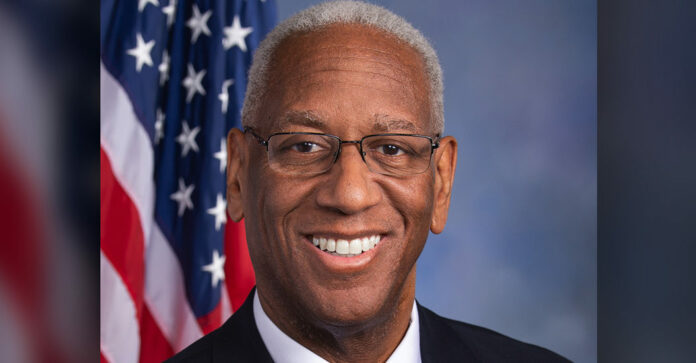
The legislation sets a nationwide goal of achieving a 100 percent clean energy economy by 2050, defined as net-zero climate pollution across all sectors of the United States’ economy.
By Stacy M. Brown, NNPA Newswire Senior Correspondent
Democratic Congressman A. Donald McEachin (VA-04) has introduced the 100 percent Clean Economy Act of 2019.
The legislation sets a nationwide goal of achieving a 100 percent clean energy economy by 2050, defined as net-zero climate pollution across all sectors of the United States’ economy.
The bill contains more than 150 original co-sponsors, according to a news release.
The National Medical Association and Green the Church were among the many national public health, environmental, conservation, and clean energy advocacy groups to release statements supporting the bill.
“The need to act on climate has never been clearer: 2019 is on pace to be one of the hottest years ever recorded and every week brings another community damaged by extreme weather events fueled by climate change,” McEachin stated in the news release.
“That is why we must boldly transition to a 100 percent clean economy. The 100 percent Clean Economy Act of 2019 will protect public health and our environment; create high-quality green jobs that will strengthen our economy; and mitigate the impacts of climate change for all communities and all generations,” he stated.
“Our climate crisis demands immediate action, and this bill will ensure that our children and our children’s children will have healthier lives and a stronger, more sustainable economy.”
Statistics provided by McEachin’s office show that more than 1 million African Americans live within a half-mile of oil and natural gas facilities, and processing and storage spaces.
Research also shows that 7 in 10 African Americans live in counties with refineries, and communities of color disproportionately are exposed to toxic air pollution from the fossil fuel industry.
African American children, who already suffer significantly more from asthma and deaths from asthma than their white peers, are particularly vulnerable from increased risks due to exposure to emissions from oil and gas facilities.
The National Medical Association (NMA), the largest and oldest national organization representing the interests of more than 50,000 African American physicians and their patients in the United States, also released a statement in support of McEachin’s measure.
As the leading force for parity and justice in medicine and the elimination of disparities in health, NMA officials said actions are needed to sustain attention and address the problems associated with climate change.
“Climate change is a public health issue that needs sustained attention and actions to address increasing respiratory diseases and other illnesses due to pollution and severe weather. A transition to a 100-percent clean energy economy by 2050 across all sectors will help mitigate the impacts of climate change,” NMA officials said in the statement.
“We ask all members to step up now and support such bold actions, which will spur clean energy development, cut the carbon pollution that contributes to climate change, protect our health, and create more clean energy jobs.”
To ensure the United States gets started soon, the 100 percent Clean Economy Act of 2019 directs federal agencies to use all existing authorities to put America on a path toward meeting the achievable 100 percent clean economy goal while remaining technology-neutral.
The legislation directs the Environmental Protection Agency (EPA) to evaluate agency plans, make recommendations to strengthen them as needed and report each year on progress toward a 100 percent clean economy.
The bill also creates an advisory committee composed of a broad range of stakeholders to provide recommendations on one or more interim goals.
The 100 percent Clean Economy Act of 2019 lays out principles for federal agency action, including, but not limited to:
- improving public health, resilience, and environmental outcomes, especially for low-income and rural communities, communities of color, tribal and indigenous communities, deindustrialized communities, and other populations disproportionately impacted by climate change;
- enhancing quality job creation and ensuring fairness and equity for workers and communities affected by the transition to a 100 percent clean economy;
- providing benefits for consumers, small businesses, and rural communities; and
- preparing communities for the impacts and risks of climate change.
“Green the Church faith communities are turning our collective efforts toward protecting the health and well-being of all Americans, especially those who are disproportionately hurt hardest by climate change, “stated the Rev. Ambrose Carroll, founder of the national organization working with Black faith communities.
Green the Church works to empower church leadership and laypeople to develop practical solutions to economic and environmental issues in the Black community.
“We call on Congress and the Administration to turn their united attention toward setting a nationwide goal of achieving a 100 percent clean energy economy by 2050,” Carroll stated.
“Failure to act now is a failure to protect our health, our environment, and our communities against the climate crisis.”



